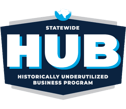When we first set out to reduce exposure to hazardous drugs, our work centered on our trusted PharmD partners. Over the past five years, as we’ve helped health systems comply with USP <800> and protect their workers, one truth has become clear: nurses play a critical role in keeping everyone safe.
As one of our clients, Erica Bane, Pharm.D., BCPS, Medication Safety Officer at Scripps Health, explains: “This is a program, not a person. Protecting healthcare workers from hazardous drugs requires a systemwide approach, not reliance on one individual.” She went on to share that with a streamlined process in place, she can finally “sleep at night” knowing the responsibility doesn’t fall on just one set of shoulders.

Building on this philosophy, we’ve expanded our approach to collaborate more closely with nurses, nursing leadership, and nurse educators. The result is a new initiative: nurse-specific onboarding, training, and continuing education designed to ensure that every member of the care team is fully equipped to stay safe when handling hazardous drugs.
Involving Nurses Before, During, and After Rollout
Our COO, Caroline McBreen, is especially passionate about working with nurses to ensure their voices are heard during the initial planning and implementation process. From her experience across many Rhazdrugs implementations, one thing has been consistent: involving nurses makes a noticeable difference. Sometimes nurses want to play an active role, sharing insights that improve workflows. Other times, they simply value being informed before the rollout begins. Either way, bringing them into the process builds trust and buy-in.
Like all professionals, nurses have established workflows and preferences that help them get through demanding shifts. Change—even when it’s positive—can feel disruptive. We suggest ensuring that Rhazdrugs sections pertaining to nurses, including administration and patient activities, align with nursing policies. We strongly suggest presenting the plan to nursing educators and consider attending the operation or clinical governance meeting as well. If you’d like an Rpharmy team member to present to your nurses, we’d be happy to help.
The best pharmacy leaders lean into empathy, recognizing that nurse feedback and collaboration aren’t just nice-to-haves—they’re critical to success. Their input adds practical, frontline value that directly impacts outcomes.
Training Just for Nurses
Once implementation wraps up, nurses require training tailored to their specific workflows. Caroline has partnered with several of our clients to build comprehensive programs, starting with onboarding and initial introductions to Rhazdrugs, moving into deep-dive sessions, and continuing with ongoing education.
While working with one healthcare system, Caroline created a six-minute video using two different hazardous drugs to demonstrate to nurses where to access safe handling and disposal information through a link to Rhazdrugs within their EHR. She also created a longer one with seven of their most accessed hazardous drugs, to ensure current and new nurses are aware of these drugs and where to find their safety protocols quickly.
Check out a clip of Caroline's training video.
But wait, there’s more! Caroline also creates a unique landing page for each client that houses these training videos. This landing page is accessible from their Rhazdrugs site. Caroline also created a flyer with a QR code linking to the landing page to be printed and posted at each workstation within the hospital. She will stop at nothing to ensure nurses can quickly and easily find the safety information they need to protect themselves from harm.
And she’ll gladly create training videos and documentation for your healthcare system as well.
Nurses’ Feedback Is as Good as Gold
One of the most valuable parts of any implementation is the feedback we receive from nurses. Their frontline insights not only make training more effective but also help us refine and improve Rhazdrugs in ways that directly impact patient and staff safety.
In fact, their feedback often uncovers gaps that might otherwise go unnoticed. During one training session, a nurse shared that she hadn’t realized a system-wide policy required all chemotherapy patients to wear a blue wristband to alert others to their medication status. Why? Because that policy was buried among more than 40 separate line items on her nurse education portal—covering everything from urology lines and catheters to hazardous drug handling. With only a few minutes to assess and treat each patient, sifting through lengthy protocols to find a single safety measure simply isn’t realistic.
This is where Rhazdrugs changes the game. By providing nurses with instant access to critical safety policies on any device, Rhazdrugs simplifies the process of finding and applying the correct information at the right time. The result: better compliance with safety protocols, more confident care, and greater protection for nurses handling hazardous drugs.
Continuing Education
Training doesn’t stop once nurses are onboarded. To support long-term success, Rhazdrugs training videos can double as continuing education resources and even be incorporated into annual competency reviews. This ensures nurses always have quick, reliable refreshers at their fingertips, whether they’re new to the unit or seasoned team members.
Rhazdrugs analytics also provide valuable insights that can guide your education plans. For example, identifying the top five most-searched hazardous drugs highlights exactly where nurses may need extra reinforcement. Instead of spending hours building broad, one-size-fits-all refreshers, pharmacy leaders can focus education on the areas that matter most to frontline staff.
This targeted approach saves time for busy nurses, while also giving pharmacy leaders confidence that their training programs are practical, relevant, and data-driven. In short, continuing education with Rhazdrugs becomes less about checking a box and more about empowering nurses with the knowledge they actually need.
Want to see what nurse-specific training could look like at your facility?
Contact us at info@rpharmy.com, and we’ll gladly share sample materials or even help create a customized plan for your team.

